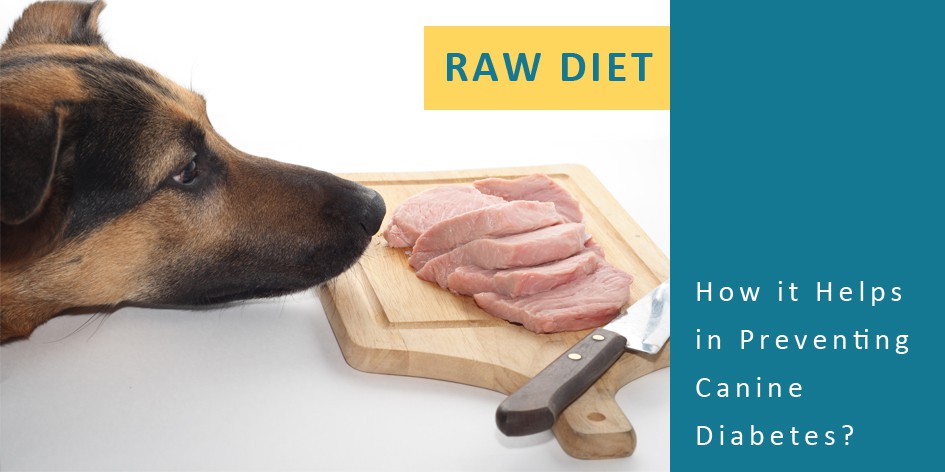Diseases never differentiate between humans and animals. There is no barring – as humans, dogs do suffer from some diseases prevalent in humans. One such example is diabetes. Canines do suffer from this disease and have to undergo many complications because of this condition.
What is diabetes in dogs?
Diabetes is a physical condition when a dog’s pancreas is not capable of producing insulin naturally which assists the body to use sugar from carbohydrates in the food or their body excessively produce glucagon, which is a hormone that releases glucose.
What are the symptoms of diabetes in dogs?
- Dehydration
- Change in appetite
- Lethargy
- Weight loss
- Increased urination
- Excessive thirst/ increase in water consumption
- Urinary tract infections
- Usually fruity breath or sweet smelling
Does Raw Food Plays Important Part In Controlling Diabetes?
Though diabetes is rare in dogs, it is important what type of food need to be given to pooches in order to prevent this non-curable disease. Through various studies, it is found that feeding raw food will help in controlling diabetes. A dog that eats a non-processed, grain-diet of cooked or raw meat, organs, raw bones and vegetables is healthier and has lower to zero possibility of acquiring this sugar disease. Moreover, providing your dog a balanced, wholesome diet and essential natural supplements to more extent removes the chances of diabetes almost entirely.
Feeding your dog with raw food diet does not make them totally bullet proof but mending what you are feeding can definitely help in controlling diabetes. This disease is hereditary but to greater extent can be stopped through nutrition. Instead of providing some processed low quality food, it is good to provide quality packaged nutritionally rich food or raw diet. Certain diets such as hill’s science diet and vet’s all natural provide special diets enriched with real nutrients. Hill’s prescription diet also has specially designed diabetic food for canines having diabetes. These diets not only keep the condition under control but also help to provide essential nutrients for the overall well-being of a dog.


